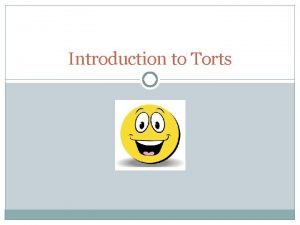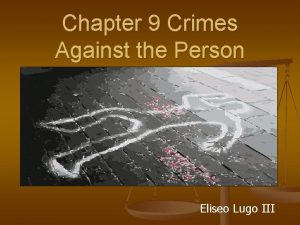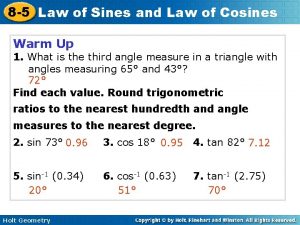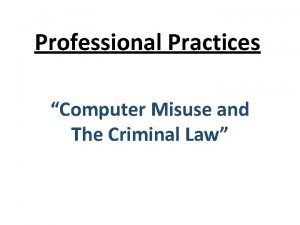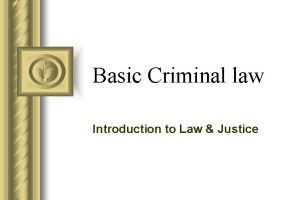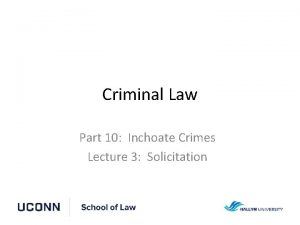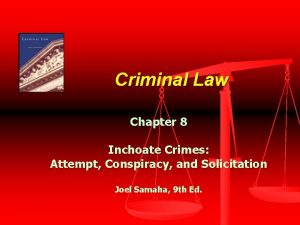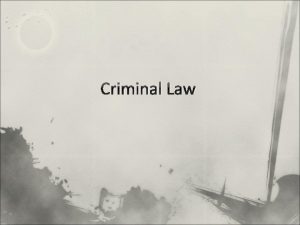Criminal Law Part 10 Inchoate Crimes Lectures 1





- Slides: 5

Criminal Law Part 10: Inchoate Crimes Lectures 1 -2: Introduction, Attempt

Inchoate Offenses • Inchoate offenses criminalize conduct which is designed to culminate in criminal conduct but which fails to do so or awaits the completion of the criminal act by another • Three primary examples: – Attempt – Solicitation – Conspiracy Criminal Law – Professor David Thaw Part 10, Lectures 1 -2 Slide 2

Attempt • The crime of attempt punishes an actor for trying to, but failing to, complete (another) crime • Defined as a function of: – (1) the requisite mens rea; – (2) the requisite actus reus; – (3) the absence of any defenses to attempt; and – (4) Merger Rule – cannot be convicted of both Criminal Law – Professor David Thaw Part 10, Lectures 1 -2 Slide 3

Attempt • Mens rea (See People v. Gentry (CB 717)) – CL: specific intent to commit the underlying crime • (for your purposes) all attempt crimes are specific intent – MPC: purposefully (acting/attempting) to commit the underlying crime • Actus reus: – CL: (four tests, not tested on your exam) – MPC § 5. 01: • (1) criminal purpose; • (2) “substantial step” toward accomplishing criminal result; and – See examples on CB 972 • (3) that step (taken in (2)) is “strongly corroborative” of the criminal purpose Criminal Law – Professor David Thaw Part 10, Lectures 1 -2 Slide 4

• Defenses Attempt – CL: (not tested on your exam) – MPC: Renunciation – even though Δ has achieved the point of inculpation (satisfied the first two elements), abandonment may exculpate BUT the reconsideration of the act must be voluntary • If Δ realizes he’d rather not swing the bat at his worst enemy, and changes direction at the last second so it hits a tree instead – may exculpate • If Δ attempts to swing the bat, and at the last minute a thirdparty pulls out a gun and says “you think twice about that!” – unlikely to exculpate – Note: Renunciation, if successful, is a defense under the MPC to all inchoate crimes (*required steps differ by crime) Criminal Law – Professor David Thaw Part 10, Lectures 1 -2 Slide 5

